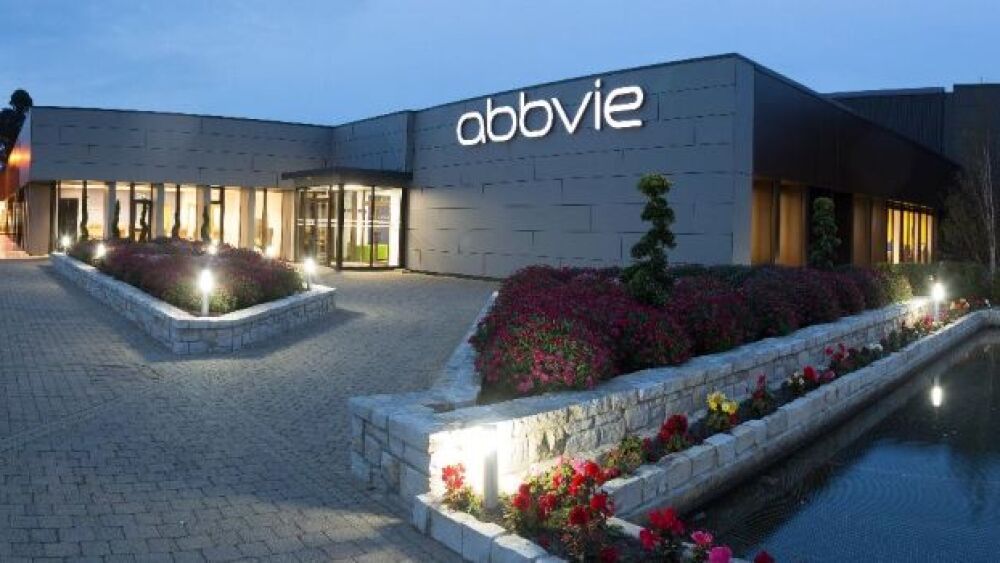Henceforth, all JAK-inhibiting drugs like AbbVie’s Rinvoq, Pfizer’s Xeljanz, and Lilly’s Olumiant, have been ordered to include a warning label on the medicine to be sold in the U.S.
AbbVie/Courtesy of AbbVie Inc. All rights reserved.
Eli Lilly & Co, Pfizer, and AbbVie have been asked by the U.S. Food and Drug Administration to tell consumers about the potential risks of their high-profile Janus kinase (JAK) inhibitor drugs.
The FDA said all approved medications involving JAK inhibitors that treat certain chronic inflammatory conditions require warnings about an increased risk of serious heart-related events, cancer, blood clots and death.
The regulator’s announcement about the heart-related risks associated with the arthritis drugs led to shares of all three pharma giants tanking after the announcement. AbbVie shed about $20 billion in market value as its blockbuster, Rinvoq (upadacitinib) is one of the drugs impacted, while Lilly’s stock was down 0.34% at the close of business Wednesday.
Blood clots and lymphoma are already listed as boxed warnings for each of these drugs. The regulator said that Pfizer’s Xeljanz may increase the risk of serious heart-related problems and cancer, basing its observation on results obtained from a February trial of the arthritis drug.
“There is an increased risk of serious heart-related events such as heart attack or stroke, cancer, blood clots, and death with the arthritis and ulcerative colitis medicines Xeljanz and Xeljanz XR (tofacitinib). This trial compared Xeljanz with another type of medicine used to treat arthritis called tumor necrosis factor (TNF) blockers in patients with rheumatoid arthritis (RA). The trial’s final results also showed an increased risk of blood clots and death with the lower dose of Xeljanz,” the FDA said in its statement.
JAK Inhibitors are the latest drug class of disease-modifying medication to emerge for the treatment of rheumatoid arthritis. They are a small, synthetic molecule-targeted treatment and are the first oral option to compare favorably to existing biologic anti-rheumatic drugs. They inhibit the activity and response of enzymes known as Janus kinases and their signaling pathways.
The FDA has asked for new and updated warnings for two other arthritis medicines in the same drug class as Xeljanz, Rinvoq and Lilly’s drug Olumiant (baricitinib).
The Indianapolis-based Lilly was not hit as hard in the market because Olumiant makes up a much smaller piece of its overall bottom line while Xeljanz is just a tiny piece of Pfizer’s pie, accounting for only 3% of the pharma giant’s total annual revenue.
The regulator noted that Olumiant and Rinvoq have not been studied in trials like the large safety clinical trial with Xeljanz, so the risks have not been adequately evaluated. However, given the similarity of their mechanisms, the FDA considers that these medicines may have similar risks as seen in the Xeljanz safety trial.
Henceforth, all JAK-inhibiting drugs like AbbVie’s Rinvoq, Pfizer’s Xeljanz, and Lilly’s Olumiant, have been ordered to include a warning label on the medicine to be sold in the U.S.
The regulator’s fresh warning has noted that two other JAK inhibitors,Incyte Corporation‘s Jakafi (ruxolitinib) and Bristol Myers Squibb Company‘s Inrebic (fedratinib), are not indicated for the treatment of arthritis and other inflammatory conditions and so are not a part of the updates being required to the prescribing information for Xeljanz.
In August 2019, the FDA approved AbbVie’s JAK inhibitor upadacitinib, but required that the drug’s labeling include a warning about the risk of thrombosis, which investors said would reduce the overall market size of JAK inhibitors. The decision was expected to have far-reaching consequences for both Gilead and Galapagos NV’s filgotinib, as well as a comparable safety warning for Rinvoq. Last August, the regulator turned down filgotinib, demanding to see more safety data.
Rinvoq was the third JAK inhibitor to gain U.S. approval in RA, following Pfizer’s Xeljanz and Eli Lilly’s Olumiant. All three drugs are taken orally, in contrast to the many injectable drugs commonly used for RA.
While AbbVie’s stock slumped on Wednesday, its diverse portfolio of products and acquired Allergan assets put the company in a good position moving forward. Moreover, AbbVie can gradually reduce its dependence on flagship product, Humira, which is losing its competitive edge at an alarming rate even as it is set to lose patent protection in 2023.
Several companies have launched Humira biosimilars in Europe and plan to launch copycat versions in the U.S. in 2023. Humira accounted for more than 43% of adjusted sales in 2020.
Overall, AbbVie saw global net revenue of $13.9 billion during the second quarter of 2021 for an increase of 33.9%. Sales were primarily driven by the company’s immunology portfolio, which generated $6.12 billion.
Rinvoq, on the other hand, has been steadily growing in revenue generation and regulatory wins. AbbVie estimates Rinvoq’s potential sales at $2 billion for the atopic dermatitis indication alone by 2025.





